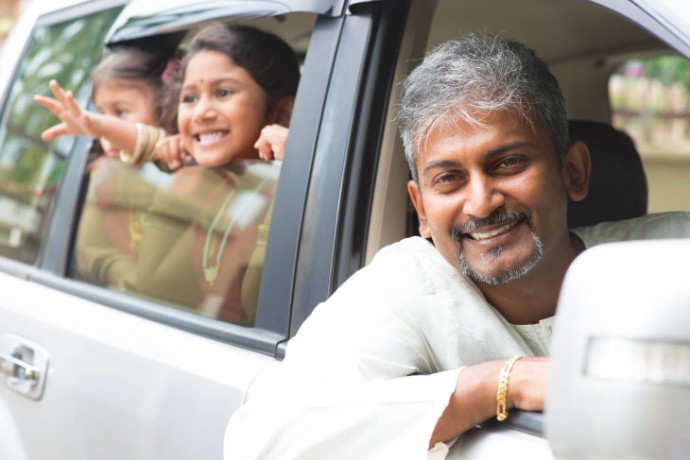1. Plan, plan, plan!
- Destination: Local or overseas? Pick a destination with something for everyone to enjoy. A tour may seem like an easy way to see everything, but take it easy and don’t pack your tour schedule with too many activities especially if you have babies and toddlers with you. The key is to remain flexible.
- Child-friendly accommodations: If a hotel is your preferred choice for accommodation, check out whether if it is child friendly and if they have family deals for cheaper options.
- Childcare facilities: If you want some private time with your spouse, check whether supervised childcare facilities are available. On arrival, take a visit to the childcare centre and if you are not happy with their services, be prepared to change your plans.
- Going to the doctor’s: Check with your doctor at least 2 months before you travel.
- If your child has any pre-existing medical conditions and requires specific medications, make sure you get them from your doctors and label them properly. Ask your doctor for recommendations on specialists near your destination who can attend to your child’s medical conditions in case of emergency.
- Prepare an identification bracelet for your child with his blood group, allergies or any pre-existing medical conditions in addition to the important contact details.
- Make sure that your family’s routine vaccinations are up to date. Travel related vaccinations such as yellow fever, hepatitis A/B or typhoid are needed if you’re travelling to high risk countries. Note: No travel related vaccinations are to be given to children under 18 months.
- Legal documents/Visas: Check your passport (or any additional documentations e.g visa) that needs to be done or updated if you are travelling overseas.
Get them involved!
If your child is old enough, ask them where they would like to go and what activities they would like to do. Get them to research and prepare a mini travel info guide about the destination of choice to get them excited.
2. A checklist of what to pack
- Appropriate clothing: Find out what the weather will be like during your travel period. For warmer climates, pack lightweight clothing. For cold climates, pack warmer clothing. Other things to consider including sunglasses, sunscreen, hats and proper shoes.
- Baby cot: Bring a hand-held carry cot or travel-cot for your baby’s convenience. It can be used as a bed in case there is nothing suitable for him at your hotel. A good cot usually comes with a cover to protect him from direct light and mosquito netting.
- Baby sling: Suitable for babies over a week old and more than 3.5kg. Choose something with wide straps for even weight distribution, and it should also offer adequate neck and back support.
- Prams and/or strollers: These are perfect if you have a young child as he can rest his tired little legs if you spend the day walking around, take a nap, and even double up as your bag carrier.
- First aid kit: thermometer, non-steroidal antiinflammatory drugs, bandages, insect repellent or creams for bug bites, anti-diarrhoeal, antacid, antiseptic cream.
- Pack your child’s favourite pillow/blanket, books, toys or CDs, food and drinks!
3. Surviving the journey
- If you are driving, ensure that your vehicle is in good condition and take note of rest areas or places of interests that you can stop at for breaks. Use child seats all the time and make sure they are installed properly.
- Be prepared to keep your child entertained during the journey. You can do this with books, toys, music, and games.
4. A checklist of things to do when you’re there.
- Find the locations: Learn where the nearest police stations, hospitals and supermarkets or convenient stores are.
- Where to breastfeed: For breastfeeding mums, find out where the appropriate places to breastfeed are to minimise any potential problems.
- Keep hydrated: Always bring your own bottled water along wherever you go during your travels.
- Stick to your child’s routine: Do this as much as possible. Try not to change his diet and make sure he eats healthily. Remember to have balanced meals.
- Stick to hygienic eateries: Be sure to eat at clean premises to minimise the possibility of diarrhoea.
- Maintain good hygiene: Wash your child’s hands with clean water and soap, or use hand sanitizers and/or hand wipes. These will come in handy as you may not have access to clean water and soap.
- Get enough rest: Young kids need their proper 10 hours of rest daily.
- Take stock: Remember to put on the protective gears (sunglasses, hats etc.) and bring extra clothing and diapers.
- Safety first: Make sure you keep an eye on your child at all times to avoid any untoward incidents, especially in crowded areas. You could offer them a reward as an incentive to make them stay close to you. If you have older children (and they tend to prefer some self-exploration), designate a meeting point just in case your child gets separated from the group.
Change of plans!
If your child suddenly falls sick before the trip, make sure that he gets proper medical attention and enough rest. Assess his condition a couple of days before the trip; if he still doesn’t feel good, it’s better to postpone the trip. Though there’ll be some monetary loss, your family’s health and comfort should come first!
Instead, you could spend quality time with your family in the comfort of your own home. Picnics, board games, DIY opportunities, catching up with sleep etc. Remember, every moment spent with your family is precious!
Travelling with kids could be a breeze if you have done your research and planning beforehand. When things don’t go as planned, keep your calm and be flexible. After all, it is your holiday too!
An educational collaboration with National Population and Family Development Board Malaysia.







Comments